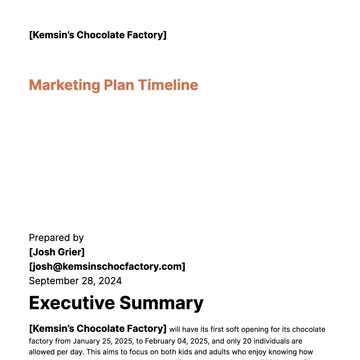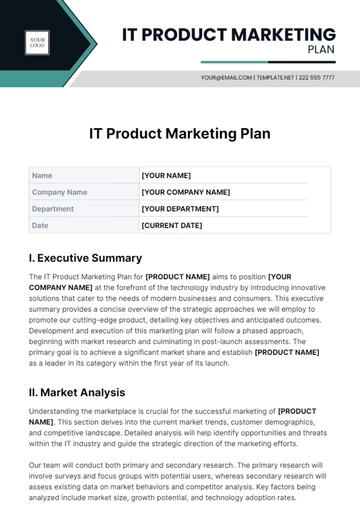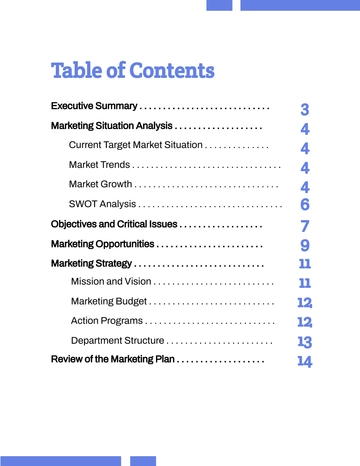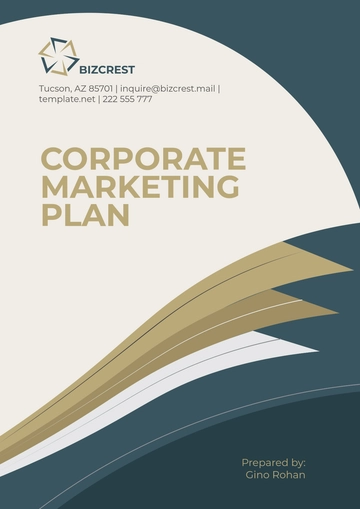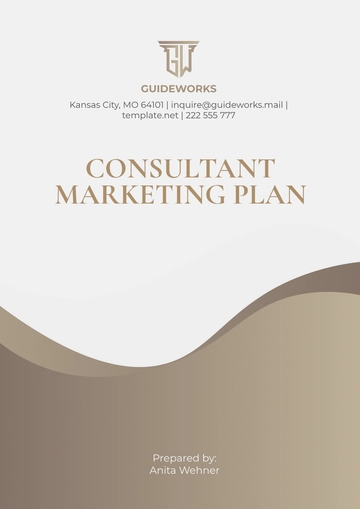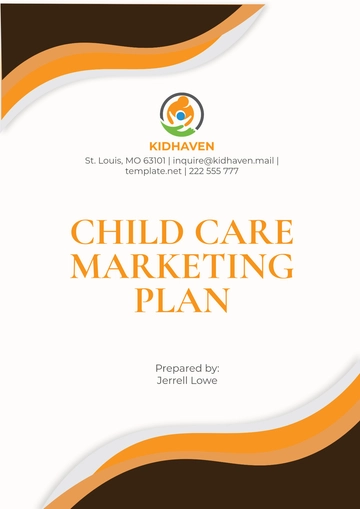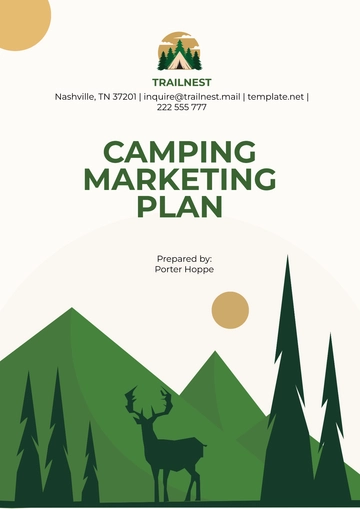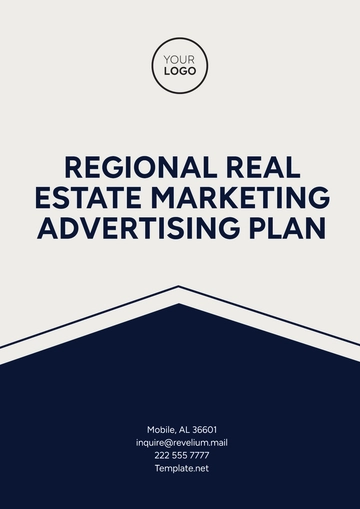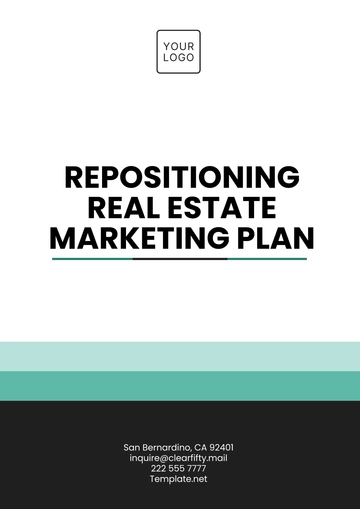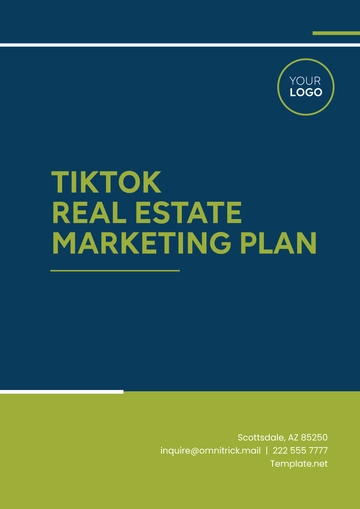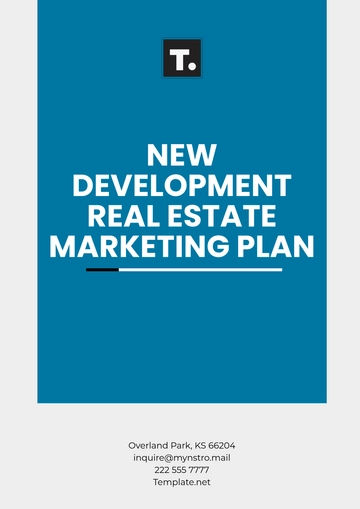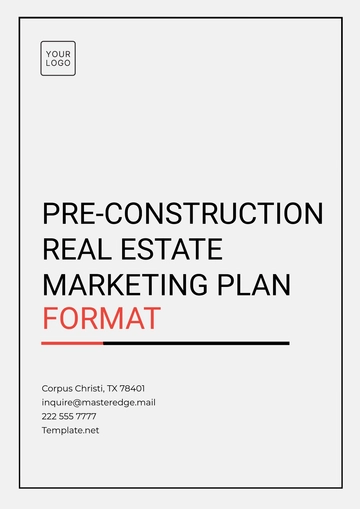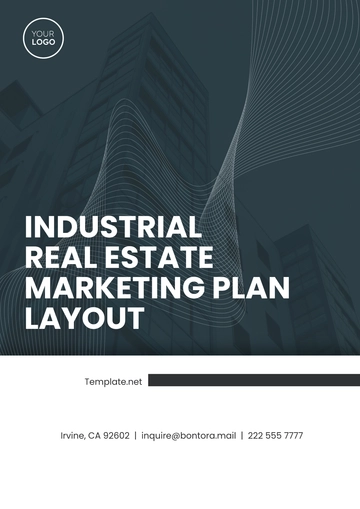Free New Development Real Estate Marketing Plan
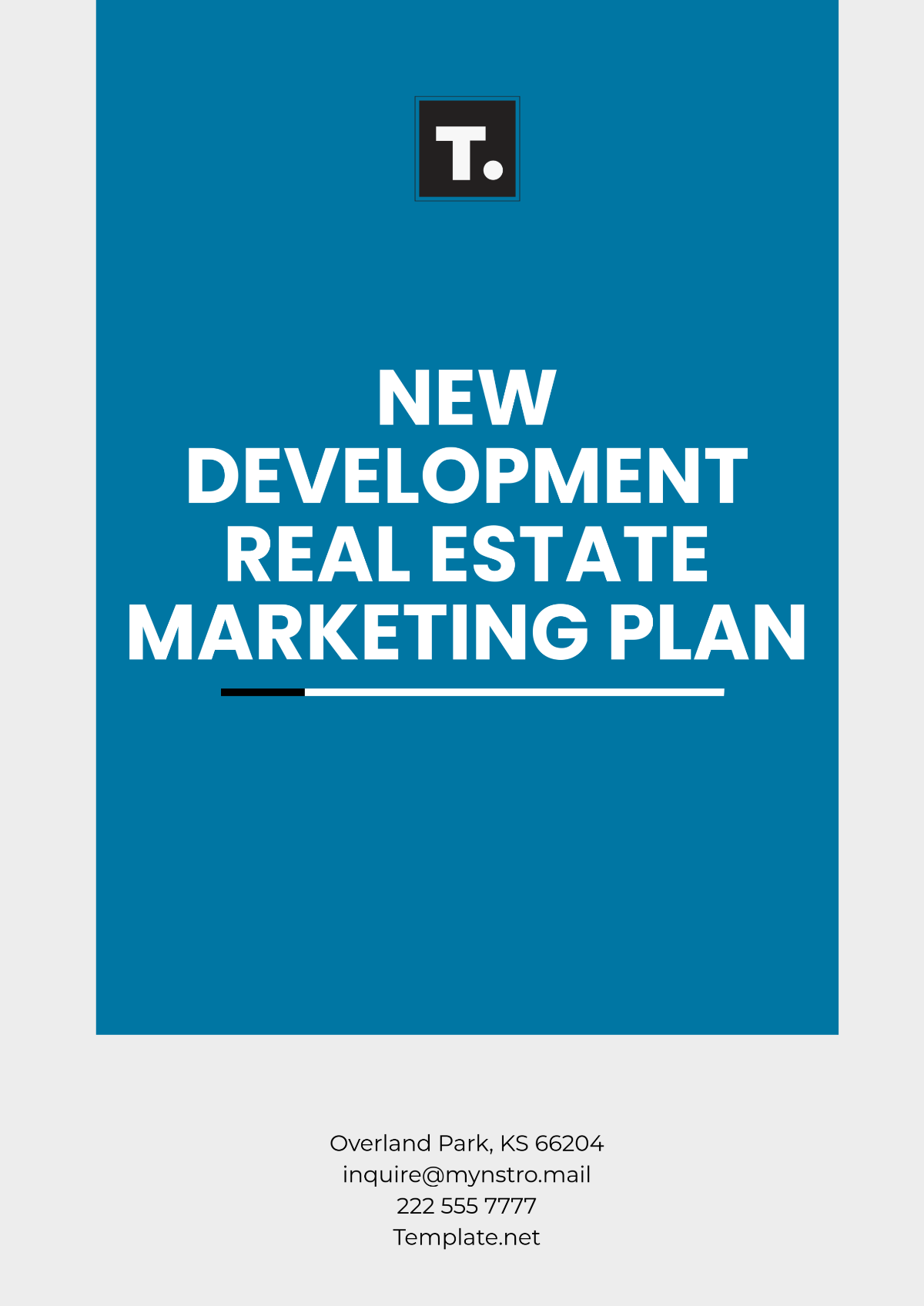
Prepared by:
[YOUR NAME]
[YOUR COMPANY NAME]
Executive Summary
This Marketing Plan outlines a comprehensive approach to successfully promote and sell units in a new real estate development project. The goal is to generate interest, attract potential buyers, and ultimately achieve strong sales performance. Our plan combines both digital and traditional marketing tactics, tailored to resonate with the needs of our target audience. The strategic focus is to establish brand recognition, drive leads, and close sales efficiently, ensuring a prominent market presence and a solid return on investment.
Market Analysis
A deep understanding of the current real estate market, including market trends, demand dynamics, and local economic factors, is essential to effectively position the development. Key components of the market analysis include:
1. Market Trends and Dynamics
Assess the local real estate trends, including property demand, price fluctuations, and emerging buyer preferences (e.g., eco-friendly homes, luxury amenities, or smart homes).
Analyze the regional economic conditions and demographic shifts that may influence demand, such as population growth, employment rates, and changes in lifestyle.
2. Competitive Landscape
Conduct a thorough competitor analysis, identifying key developments in the area and assessing their marketing tactics.
Evaluate the strengths and weaknesses of competitors’ offerings (e.g., pricing, features, location) and leverage this insight to differentiate our property.
3. Target Audience
To ensure our marketing strategies resonate, we have identified three primary buyer personas:
Young Professionals: First-time homebuyers seeking modern, affordable apartments or condos near employment hubs. They value convenience, connectivity, and contemporary designs.
Families: Potential buyers looking for spacious, family-oriented homes with access to good schools, parks, and safety features.
Real Estate Investors: Individuals or companies interested in properties that offer high rental yields and long-term capital appreciation.
Marketing Objectives
The following key objectives will guide our marketing efforts:
Objective | Outcome |
|---|---|
Build Brand Awareness | Generate significant interest and recognition for the new development. |
Generate Quality Leads | Create a robust list of potential buyers, capturing details for follow-up communication. |
Drive Sales and Leasing | Achieve a targeted number of sales within the first year, with a clear conversion strategy. |
Marketing Strategies
1. Digital Marketing
Digital channels will form the backbone of our strategy, allowing us to reach a broad, engaged audience.
Website Development: A visually appealing, easy-to-navigate website will feature virtual tours, floor plans, detailed property descriptions, and online booking options for appointments and inquiries.
Social Media Marketing: Utilize platforms like Instagram, Facebook, LinkedIn, and YouTube to share property highlights, behind-the-scenes development stories, and promotional offers. Paid targeted ads will drive traffic and generate leads, while organic content will build long-term engagement.
Search Engine Optimization (SEO): Optimize our website and online listings to rank higher on search engines for relevant queries, such as "buy new apartments in [City]" or "luxury condos for sale." This will enhance our visibility and attract organic traffic.
2. Traditional Marketing
While digital strategies are critical, traditional methods will complement these efforts to ensure local visibility.
Open Houses & Property Tours: Organize regular open house events to give potential buyers a firsthand experience of the property. Offering guided tours with engaging narratives about the development will help create a memorable impression.
Direct Mail Campaigns: Send postcards, brochures, or flyers to targeted households within the local area, offering exclusive invitations to events or providing key details about the property’s features.
Real Estate Agent Partnerships: Collaborate with trusted local real estate agents and brokers who have strong connections within the community and can help widen outreach.
3. Public Relations and Media Outreach
Building credibility through third-party channels can help bolster our brand image and reach a wider audience.
Press Releases & Media Coverage: Regularly release updates to local media outlets, such as news of the launch, unique features of the development, or key milestones like completions or sales successes.
Influencer Marketing: Partner with local influencers or real estate bloggers to promote the property through their platforms, reaching a broader, engaged audience.
Budget Allocation
An optimal marketing budget ensures that resources are allocated effectively to each channel.
Category | Budget Allocation |
|---|---|
Digital Marketing | 40% of total budget |
Traditional Marketing | 30% of total budget |
Sales Promotions | 20% of total budget |
Contingency Fund | 10% of total budget |
Each category is designed to be flexible, ensuring that we can respond to market dynamics and adjust funding based on performance.
Implementation Timeline
Our marketing plan will follow a structured timeline to ensure consistent execution and tracking of progress.
Month | Activities |
|---|---|
Month 1 | Conduct market research, and finalize branding and website design. |
Month 2 | Launch digital presence, optimize SEO, and set up social media. |
Month 3 | Start social media ads and hold the first open house events. |
Month 4 | Continue marketing efforts, boost email outreach, and focus on lead generation. |
Month 5 | Host major launch events and increase media outreach. |
Month 6 | Evaluate progress and adjust strategies as needed. |
Monitoring and Evaluation
Regular evaluation is vital for ensuring the success of the marketing strategies. The following KPIs will be monitored:
Website Traffic: Track the number of visits, bounce rates, and page views.
Lead Generation: Monitor the number of leads captured through online forms, event registrations, and inquiries.
Social Media Engagement: Measure engagement rates, follower growth, and ad performance.
Sales & Leasing: Track the number of units sold or leased and compare against targets.
Adjustments will be made to campaigns based on performance data to optimize results.
Conclusion
By executing this comprehensive New Development Real Estate Marketing Plan, we aim to position the property as a standout choice in the market. Through a combination of targeted digital and traditional marketing strategies, we will generate brand awareness, attract leads, and convert them into successful sales. Our approach ensures that the development will reach its potential, fostering long-term relationships with buyers and establishing a strong presence in the competitive real estate market.
- 100% Customizable, free editor
- Access 1 Million+ Templates, photo’s & graphics
- Download or share as a template
- Click and replace photos, graphics, text, backgrounds
- Resize, crop, AI write & more
- Access advanced editor

